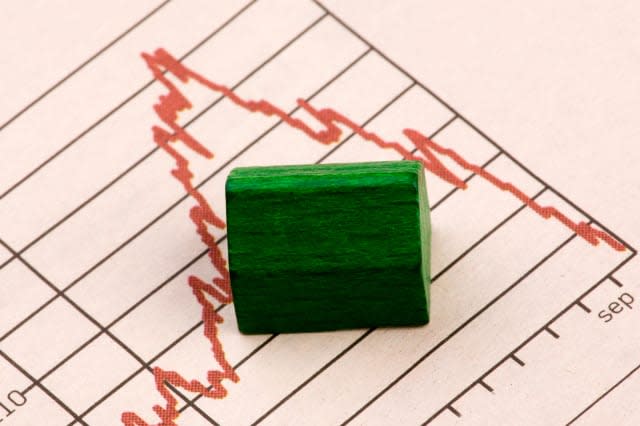Are we set for a house price collapse?

If there's one thing we know about house prices it's that they rise. Since 2009 they have been on a seemingly inexorable path to new highs, and in May this year the average house price topped £210,000. However, what many people overlook is that prices can also fall, and some of the signs are looking spectacularly bad.
See also: House price growth pushes average value over £210,000, says Nationwide
See also: How Brexit is already killing the housing market
Affordability
One of the biggest problems with the property market is affordability. House prices have been rising rapidly, while wages have stagnated, so that property prices move further and further out of reach for ordinary buyers.
This is hardly a new trend, but at some point we will reach the stage where there aren't enough buyers who can afford a home of their own. Some people argue that at a time when first time buyers need to save an average deposit of £33,000 for a hope of getting onto the property ladder, we have reached that point.
It's not just the price of property that's causing this squeeze on affordability, but also the effects of inflation, pushing up everyday costs - while wages fall in real terms. When people cannot afford to buy or trade up, then the housing market stagnates.
Stagnant market
Over the past few months sales have dried up. The number of houses coming to the market has been falling for more than a year - partly as a result of uncertainty about what will happen next to the British economy, and how Brexit will play out. While initially it simply meant steady sales and rising prices - as the same number of buyers chased fewer houses - over time it meant fewer buyers, and sales starting to stagnate.
There will always be those who have to sell, who in order to do so will need to drop the price. According to Zoopla, there are more than 30 towns and cities in the UK where more than 40% of sellers have cut their asking price. In Stockport, Chesterfield, Huddersfield, Doncaster and Wigan more than 45% have done so. A study by the National Association of Estate Agents found that in May 77% of homes sold for below the asking price.
Price drops
In the spring, this manifested itself in falling prices, for three consecutive months. All the losses were wiped out by a 1.1% rise in June - which brought annual price rises to 3.1%. However, it's far to early to say whether this rise demonstrates a return of growth to the market, or a blip on the way down.
Certainly the picture isn't uniform across the UK. Within London prices are only up 1.2% in a year, and in prime central London, prices continue to struggle. London house prices tend to set the trends for the rest of the market - falls tend to start in the Capital and then spread out across the county. There are some commentators who are waiting for property woes in London to become commonplace everywhere.
Mortgages
For now, mortgages remain affordable, which is helping sustain prices, but we have seen a new threat raise its head. The Bank of England is worried about inflation, and has discussed raising interest rates. It's far too early to predict a rise, but the risks are growing. If rates rise, they will have a knock-on effect on mortgage rates, and so people may struggle to pay their mortgage.
This could be enough to push prices down.
Two separate academics from the London School of Economics have warned that if Brexit leads to slow growth or recession, there is likely to be an extended and severe downturn in the property market. They argue that a 'correction' is due - and it could get ugly. There has been speculation that this could mean price drops of the magnitude of the last great house price crash in 2008 and 2009 - where prices fell almost 40%.
But what do you think? Are these experts right? Or will the growing population and sluggish house building mean prices always stay high (which is what one Imperial College Professor has argued)? Let us know in the comments.




